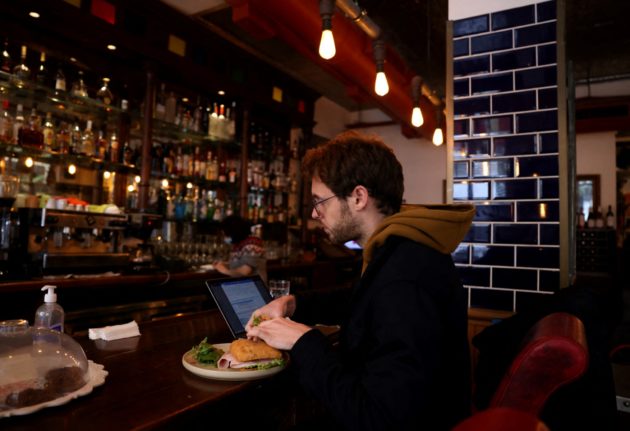If you are looking for a job in France, then you might find that the job search websites you used in your home country do not offer as many results here.
France has its own popular job search websites, in addition to those that are popular in the US and UK, though they might need a bit of tweaking to get more results in France.
Here are the websites you will want to bookmark as you search starting with The Local’s own job search site and below you’ll find a list of essential tips to know about job-hunting in France.
Popular in the anglophone world, LinkedIn is commonly used for job seekers in France too. It’s pretty simple – you can just search for jobs normally, while changing the location to ‘France’.
If you can work in both languages, consider adding a few lines to your LinkedIn ‘bio’ in French.
To look for jobs in France with Indeed you will need to use the French version (fr.indeed.com), and you can expect almost all of the job offers to be in French.
One benefit to ‘Indeed’ is that you can check salary estimates for your role or field, which is found under the ‘Estimation de salaire’ tab.
This job site is very popular in France. There are both French and English versions. One of the benefits is that you can see a small description of the company, including gender breakdowns, the number of employees, and the average age of employees.
As the site is geared toward French people, there are many more French-speaking than English-speaking roles.
As France seeks to attract foreign investment, innovative tech companies and start-ups, the government has created more resources and websites to help qualified foreigners move here.
One website is ‘French tech jobs’, which lists available English-language tech jobs across France.
Many tech workers can qualify for the ‘talent passport’ residency card, which acts as its own work permit and makes life a lot easier for skilled candidates looking to move here.
READ MORE: Talent passport – The little-known French visa that could make moving to France a lot easier
This French job site is popular amongst recruiters. One benefit for job seekers is that you can select the language of the job you are searching for, so you can narrow down English only options.
That being said, be sure to read the entire job description – many roles in France might be listed in English, but later they will require at least some minimum level of French.
You might be familiar with the English version, but to search for jobs in France you will want to use Glassdoor.fr.
The one downside to Glassdoor is that you need an account to start job searching, but similar to Indeed it also has helpful salary and company information if you create an account.
READ MORE: What is ‘job dating’ in France?
Previously ‘Pôle Emploi’, France Travail is the employment arm of the French government. The France Travail website has a search bar for jobs. It also has plenty of useful pages and information on building your CV, interviewing, and getting additional training.
In comparison to the other websites listed above, this one will skew even more toward Francophone jobs (on account of being a government website).
READ MORE: Digital nomad: What are the rules on working remotely from France?
Essential tips for job hunters
Before you start looking for work in France, you will want to think about a few things.
First – do you have the right to work in France? If you are an EU national, then you have the right to freedom of movement. Spouses of French and EU nationals can also qualify for residency permits that allow the right to work.
However, non-EU nationals looking to move to France, as well as people already resident here, need to think about whether they will need a work permit.
You can use the simulator on the French visa website HERE to get an idea of whether it will be necessary, depending on your residency status.
READ MORE: Three things to know about work permits in France
Second – consider salary levels and contract types. If you are moving to France from the United States, you will likely notice that the same role in France will pay significantly less than it would in the US.
There are pros and cons to consider with this – healthcare costs in France, for instance, may be lower than in the US. Depending on where you are coming from, cost of living might be lower or higher in France than what you are used to in your home country.
READ MORE: How much money do I need to live in France?
France also has specific types of contracts. The CDI is an unlimited contract, and this can be harder to come by. On the other hand, the CDD is a fixed-term contract. These are more common, but they might run only a few months.
Third – language. If you do not speak French, then you will have a harder time finding work here. While there are some opportunities in English, if you are only searching using English terms then you probably will see limited results.
To view more options, search your sector’s name and job title in French and use it to set up some alerts. If you want a job that is not entirely in French, add ‘anglais’ or ‘anglophone’ to the search bar.
Keep in mind that a lot of options will be for bilingue jobs, meaning you would be expected to work in both English and French (meaning you would likely need a minimum level of French to apply).
If you are looking for jobs solely in English, then you could keep your searches to English only, but your options might be limited.
Depending on your sector, you might start by looking for large American or British companies with offices in France to see if they have any openings or to set up a job alert for the future.
READ MORE: Ask the expert: How to write the perfect French resume



 Please whitelist us to continue reading.
Please whitelist us to continue reading.
Member comments